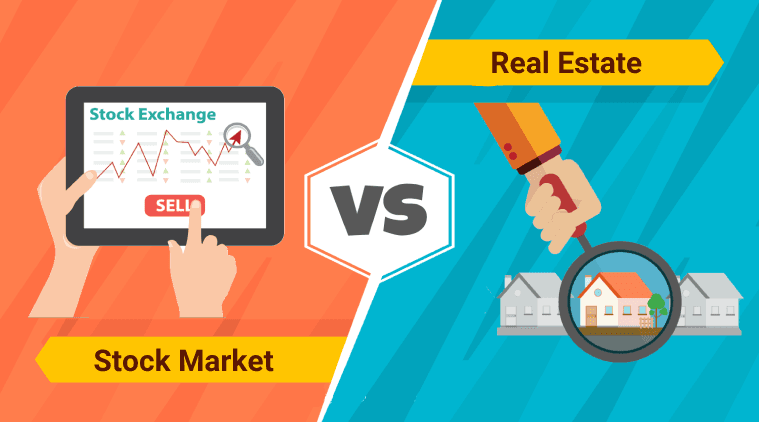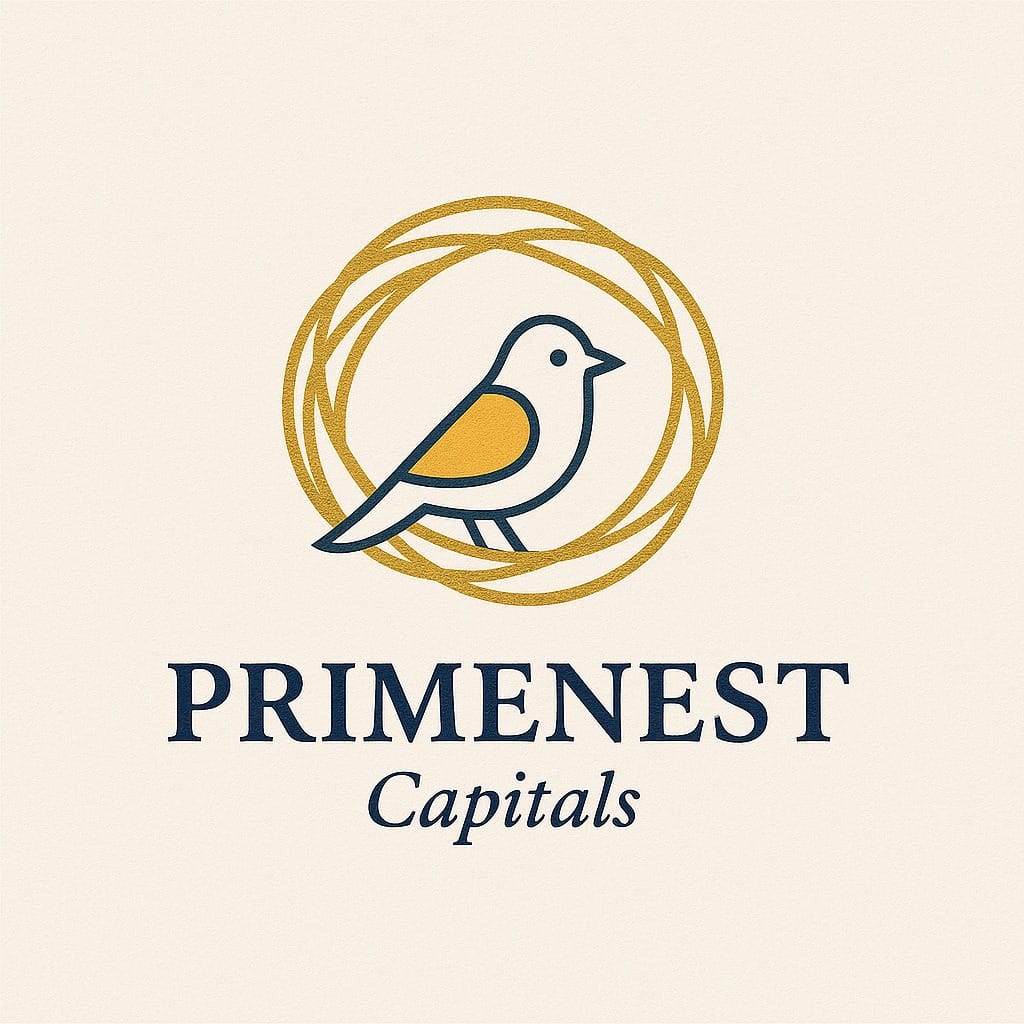When it comes to investing, you’ve probably heard about two heavy hitters: the stock market and real estate.
Both have the potential to build wealth, but they are vastly different in how they operate, how risky they are, and what kind of returns they offer.
So, the big question: Where should you invest? Is the flashy world of stocks where you want to park your money, or do you prefer the brick-and-mortar stability of real estate? Let’s dive in.
In this article, we’ll break down the two options for you in a way that’s easy to understand, with a bit of humor and some Gen Z flair along the way (because let’s be real, investing doesn’t have to be boring).
Whether you’re just starting out in your investment journey or you’re trying to decide which path to take next, this guide will help you make an informed choice.
The Basics: Stock Market vs. Real Estate
Before we jump into the pros and cons, let’s start with some simple definitions, just in case you’re new to the investment game.
Stock Market: The Wild West of Investing
The stock market is where you buy and sell shares of publicly traded companies. It’s a dynamic space where companies go public to raise capital and investors can buy a piece of that company. If the company grows, the value of your shares can increase, and if the company struggles, so does your investment.
Think of it like this: the stock market is the rollercoaster ride of investments, full of ups and downs, twists and turns, and more excitement than you probably need. But hey, that’s part of the thrill, right?
Real Estate: The Tangible Investment
Real estate is all about investing in physical property—whether it’s land, homes, or commercial buildings. Real estate is typically a long-term investment, and you make money in one of two ways: by selling a property for more than you paid or by renting it out and collecting passive income.
While real estate might not be as exciting as the stock market (no roller coasters here), it’s a much more tangible investment. You can actually see and touch the property, which can provide a sense of security. Plus, in a well-maintained market, real estate tends to appreciate over time.
Stock Market vs. Real Estate: The Pros and Cons
Now that you know what each investment type is, let’s weigh the pros and cons. This will help you figure out which option aligns better with your goals.
Stock Market: Pros & Cons
Pros:
- Liquidity (You Can Sell Anytime)
One of the biggest perks of investing in stocks is that you can buy or sell shares relatively quickly. You can literally sell a stock in a matter of seconds (hello, Robinhood app!) and have cash in your account. This liquidity makes stocks a great choice if you need to access your money quickly. - Potential for High Returns
The stock market offers the potential for massive gains. If you invest in the right companies, you could see returns that dwarf most other types of investments. Look at tech stocks like Apple or Tesla—people who got in early made bank. - Diversification
With stocks, it’s super easy to diversify your portfolio. You don’t have to put all your money in one place. You can spread your investments across industries like tech, healthcare, energy, and more, which helps lower your risk. - Low Barrier to Entry
You don’t need hundreds of thousands of dollars to get started in the stock market. Thanks to apps like Robinhood and Webull, you can start investing with as little as $1. That’s ideal if you’re just dipping your toes into the world of investing.
Cons:
- Volatility (It’s a Wild Ride)
Stock prices can swing dramatically in short periods. One minute, you’re up 10%, the next minute, you’re down 15%. This kind of volatility can be unsettling, especially if you’re risk-averse. It’s the classic case of “hold on tight, or get off the ride.” - Requires Research and Knowledge
The stock market isn’t a “set it and forget it” investment. You need to stay informed about the companies you invest in, track market trends, and make smart decisions. It’s not like buying a house and sitting back—it takes some work. - Potential for Losses
With stocks, it’s possible to lose your entire investment. If a company goes bankrupt, your shares are worth zero. Yikes. While this is rare, it’s still something to consider.
Real Estate: Pros & Cons
Pros:
- Tangible Asset (It’s Real, Literally)
One of the biggest advantages of real estate is that it’s a physical asset. You can touch it, renovate it, and even live in it if you want to. This tangibility provides a sense of security that you don’t always get with stocks. Plus, there’s always the potential to sell the property for a profit if it appreciates over time. - Consistent Cash Flow (Rent Money)
If you invest in rental properties, you can earn a steady stream of income each month. As long as you have tenants, you can rely on rent payments to cover your expenses and generate profit. This makes real estate an attractive option for those looking for passive income. - Appreciation Over Time
Real estate tends to appreciate in value over time, especially in growing markets. If you buy a property in a developing area, the value of that property could increase significantly over the years. - Tax Benefits
Real estate investors can enjoy a number of tax benefits, such as deductions for mortgage interest, property taxes, and depreciation. These tax breaks can make real estate investing more profitable than other types of investments.
Cons:
- High Initial Cost
Real estate typically requires a large upfront investment. You’ll need to have enough capital for the down payment, closing costs, and possibly repairs or upgrades. Not everyone has that kind of money lying around. - Illiquidity (You Can’t Sell Quickly)
Unlike stocks, real estate isn’t something you can sell on a whim. It can take weeks or even months to sell a property, and in some cases, the market might not be favorable. If you need cash quickly, real estate might not be your best bet. - Maintenance and Management
Owning property comes with responsibilities. If you’re renting it out, you’ll need to handle maintenance, repairs, and tenant issues. This can be time-consuming and stressful unless you hire a property manager (which costs money, of course). - Market Risk
Like the stock market, the real estate market can also experience downturns. If property values in your area decrease, you might end up with a loss. A sudden economic downturn can also impact rental income, making it harder to rely on your investment.
Stock Market vs. Real Estate: Which One Should You Choose?
By now, you should have a clearer understanding of the pros and cons of each investment. But how do you know which one is the best choice for you? Let’s break it down based on different goals and scenarios.
1. If You Want Fast Returns and Can Handle Risk: The Stock Market is Your Jam
If you’re looking for quicker gains (or losses), the stock market could be your playground. With stocks, you can potentially earn big returns in a short amount of time, especially if you invest in high-growth sectors like technology or biotech. But remember, with great rewards come great risks. The stock market isn’t for the faint of heart—expect the ups and downs.
Best for: Risk-takers, those who want flexibility, and those looking for shorter-term investments.
2. If You Want Stability and Tangible Assets: Go with Real Estate
If you’re looking for a long-term investment that’s a bit more secure, real estate might be a better option. Over time, properties tend to appreciate in value, and rental income provides steady cash flow. It’s also a nice feeling to know you own something tangible, rather than just holding paper stocks. However, it does require a bigger upfront investment and ongoing effort in managing the property.
Best for: Those who prefer stability, have a larger initial capital to invest, and are willing to put in the work (or pay for someone else to).
3. If You’re Interested in Both: Diversification is Key
Why not do both? A balanced portfolio often includes a mix of different assets. By combining stocks and real estate, you can diversify your investments, which reduces risk. For instance, you could invest in real estate to generate passive income, while also investing in stocks for growth potential.
Best for: Those who have a decent amount of capital and want to spread their risk across different asset classes.
Conclusion: Your Money, Your Decision
At the end of the day, the best place to invest depends on your personal financial situation, goals, and risk tolerance. Whether you choose the thrilling ride of the stock market or the long-term stability of real estate, the most important thing is to start investing. Don’t let the fear of making the “wrong choice” stop you—both options have their ups and downs, but with the right approach, both can lead to financial success.
So, what’s the verdict? If you’re ready to roll the dice and take on some risk, the stock market might be calling your name. But if you’re more of a “steady wins the race” type, real estate could be your best bet. Either way, keep learning, keep growing, and remember that no investment is without risk.
Happy investing, fam!





